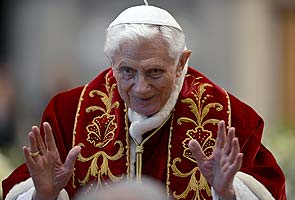
(File Photo)
Already, 3.2 billion people pay for mobile services, nearly half of the world's population, said a study by A. T Kearney and GSMA, which represents 750 mobile operators and organises the vast, four-day annual Mobile World Congress.
The report forecast that a further 700 million subscribers would be added by 2017 and the four billion-subscriber mark would be hit in 2018.
Most of the growth was in the Asia Pacific region, where operators were forecast to raise revenue by 4.0 percent a year up to 2017, adding $80 billion, or 23 percent, to their revenue of $350 billion, the report said.
But Africa showed the fastest growth, and mobile operators there were predicted to boost revenue by 25 percent over the 2012 to 2017 period to 70 billion dollars.
Worldwide, the growth in mobile operators' revenues was expected to slow, however, from a 4.0-percent annual expansion from 2008 to 2012 to an annual pace of 2.3 percent in the period up to 2017.
"One of the reasons for the slowdown is the decline of revenues in Europe," the report said, blaming "heavy regulation" of mobile prices, and impact of the euro-zone economic crisis for an estimated fall in revenue from $248 billion to $216 billion from 2008 to 2012.
"The mobile operator market in Europe is expected to decrease further by 2.0 percent a year to 2017 due to competition and regulation. This trend, together with the growth in traffic, show the increasing value to consumers, who are using mobile services more while spending less," it said.
New lightning fast fourth-generation mobile networks, which promise download speeds as quick as the best fixed broadband connections, could boost revenues, it said, pointing to higher prices being commanded for 4G in North America, Scandinavia, South Korea and Japan.
"In Europe it is still too early to judge consumer reaction to the new services but it is certainly true that operators are positioning 4G as a premium service," the report said.
The use of mobile phones was exploding, the GSMA report said.
"At the end of 2012, there were 6.8 billion mobile connections worldwide, a figure expected to grow to 9.7 billion by the end of 2017," the report said.
But the industry urged regulators to use a light touch.
"The mobile communications industry is creating a mobile economy, both directly through network investment, job creation and contributions to public funding, and by transforming adjacent industries such as education, healthcare, payments, transportation and utilities," said GSMA director general Anne Bouverot.
"But to fully realise this future and to enable the mobile industry to maximise its investments, it is essential that we establish a light-touch regulatory environment, based predominantly on competition, and develop new business models that will allow all ecosystem participants to benefit from the mobile economy."


